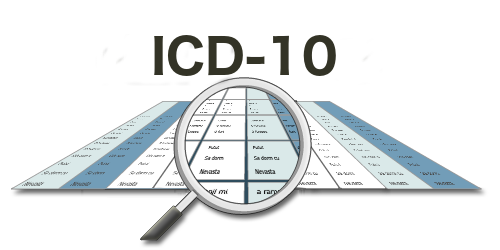
People with either type of diabetes are able to work, compete in sports and accomplish their life goals. Diabetes is a chronic condition that can be treated. Being diagnosed as diabetic does not put a stop to anything you want to do in life.
Contents
Under most laws, both Types I and Type II diabetes are considered disabilities. Although all types of diabetes are considered qualifying Disabilities, this does not stop any subjects from discriminating.
As stated, diabetes is a controlled chronic condition, it is treated medically with insulin therapy, the proper diet and weight management.
Social Security or Disability Payments

There are times that some people may qualify for disability payments under the Social Security laws. This is not always the case, however. Being diagnosed with a condition does not qualify any person as completely disabled and unable to work.
If there are medically serious issues with Diabetes that prevent the person from doing a job, they may qualify.
Federal Law

Under the guidelines of the Federal Law, Diabetes is listed as a disability as it is substantially limited in functioning by the Endocrine system.
Diabetes is considered an invisible disease, yet still, a disability if the person is healthy and the condition is well managed.
Diabetes is considered an invisible disease since it limits the system to the internal portion of the body, not the external.
In regards to receiving disability payments, a diabetes diagnosis is not enough to qualify. The condition must be serious enough that it hinders the ability of the person to work.
State laws may override the Federal laws if they are stronger, however, if not, the Federal laws will override.
ADA

There are many conditions that qualify as a disability under the ADA, Americans with Disabilities Act. Diabetes is one of those. This law protects the person from any form of discrimination when it comes to a position of employment.
Social Security and Federal guidelines will basically weigh each case of diabetes on a case by case issue. This is because the disability does not always cause problems that can hinder the person from working.
However, there are issues when Diabetes has been so severe that it has caused nerve damage or blindness.
W.H.O.
The World Health Organization determined there are three parts to a disability.
Impairment:

This relates to your body and how it is affected. This pertains to movement, or your mental function, loss of memory or loss of vision.
Activity Limits:
This can relate to walking, vision, hearing, or problem-solving. Does the disease limit or cause an impossible challenge for you compared to what non-disabled people can do?
Participation Limitations:

This is in reference to whether you are able to participate in regular daily activities versus what you can participate in if you had no disability. This category includes activities such as socializing, working, and obtaining health care among others.
The Americans With Disabilities Act also prevents any employer from asking questions such as:
- What medications do you take?
- If you have ever filed for Worker's Compensation.
- If you have a disability that would prevent you from performing the job.
- They also cannot discuss the number of sick days you have used in the last year.
In certain situations, a medical exam or questionnaire may be allowed to be given to you, AFTER you have received a job offer. The place of employment can not rescind the job offer if you tell them that you have Diabetes.
One way they can rescind the job offer is if you cannot perform any portion of the job you have been offered. An employer is responsible for having reasonable accommodations available, however.
Reasonable Accommodations

Reasonable Accommodations for diabetes mean that you are allowed to take breaks. These breaks allow you to check your blood sugar, eat a snack and use the restroom. Also, if needed you would be able to take your medication at this time.
A place to rest in the case of a problem with your blood sugar.
The ability to keep food and medication in close proximity.
The chance to work a modified shift or standard shift instead of a swing shift.
Work Travel

If you need to travel for work, you are able to bring medications through security. This means the following items can be brought with you:
- Lancets
- Insulin and the items you need to dispense it
- Unused syringes when they are along with the injectable medication.
- Used syringes kept in a hard covered container that will hold the syringes and the test strips.
- Liquids, including juices, waters and liquid nutrition, or gels.
Debilitating Disease

There are many who consider Diabetes Type 2 a mild disease. In actuality, there is no such thing as mild diabetes. Any form of diabetes is dangerous. If diabetes is not controlled it can lead to serious health concerns. Some complications range from blindness, amputations, kidney issues and strokes.
Some medications can cause the blood glucose to drop too low, causing Hypoglycemia. This hypoglycemia must be treated immediately with a non-diet drink, glucose tablets, quick-acting glucose or sweets.
Sometimes, the stresses of life can cause people to ignore meal times. This is something that diabetics should do. It is recommended that people stick to a routine of meals and snacks in between to prevent any possible hypoglycemic attacks. Not eating routine meals or appropriate snacks can cause a diabetic to be confused and dizzy.
Hypoglycemia is a situation that can be controlled. With a proper diet, snacks and carrying glucose tablets with you. That is not the only issue that can happen to a person with diabetes. They may also experience Hyperglycemia. This is when the blood sugar is too high.
They may also experience Diabetic ketoacidosis. Ketoacidosis is when insulin levels begin to build up in the body, this can be harmful and life-threatening. Long term complications include how diabetes affects your eyes, kidneys, heart and your nerves.
According to the National Institute of Health, Type 2 diabetes is a chronic condition, but it could be prevented. There is a Resolution, that is going nowhere fast, that would develop and implement a National Prevention Plan. It seems obvious why they are having a hard time getting this through to the next stage.
It is not considered lawful to demand that people eat correctly, eat healthily and exercise. Learning how to eat right and be active on a daily basis are the two key elements to helping people prevent Type 2 Diabetes. Another difficult fact that many families face is budgeting for the proper foods. The majority of people would likely choose to eat healthier if those foods were affordable.
In many areas of the world, it is cheaper for families to purchase high fat, processed foods and canned items versus fresh and healthier fruits and vegetables. This is where action needs to be taken. It should be easier for the citizens to afford good food, healthy foods, rather than the fattening and high-calorie products.
No one could argue the fact that prevention plans are needed, however, in order to follow through on those plans, the foods need to be affordable.
Conclusion

Diabetes is a Global Epidemic, it does not just choose one race, one culture or one country. Diabetes has affected hundreds of millions of people all across the globe. W.H.O. has determined that by 2030, diabetes will be the 7th leading cause of death in the world.
People with Diabetes may live shorter life spans than those without. Type I is believed to be roughly 10 years shorter a life. For Type 2 Diabetes, WHO states it may be up to 20 years shorter a life span.
Ignoring diabetes, either type, will not make it go away. Ignoring Diabetes will only make issues much worse. Mild to moderate blood sugar levels may go unnoticed, and will not cause any symptoms.
Then you have symptoms that start to flare up and the person may suspect something is going on within them, yet they do not take the time to get checked out by their Physician. Some of these symptoms can include:
- Excessive Thirst
- Blurry Vision
- Frequent Urination
- Fatigue
- Continuous skin infections
- Wounds that do not heal.
Untreated high blood sugar will begin to affect the cells and organs within the body. Kidney issues can lead to dialysis. Eye damage can lead to blindness and they both can lead to a higher risk of heart disease and stroke. Untreated sores, especially on the feet will lead to amputations.
Diabetes does not need to be a debilitating disability. For that fact, diabetes does not need to have a major impact on your life when you are treating it with medication, proper diet and exercise.
Is it a disability? Definitely, there is a part of your body that is not working the way it was meant to and that has caused some issues in your life. These issues are easily controlled and maintained, Diabetes is not a death sentence.





